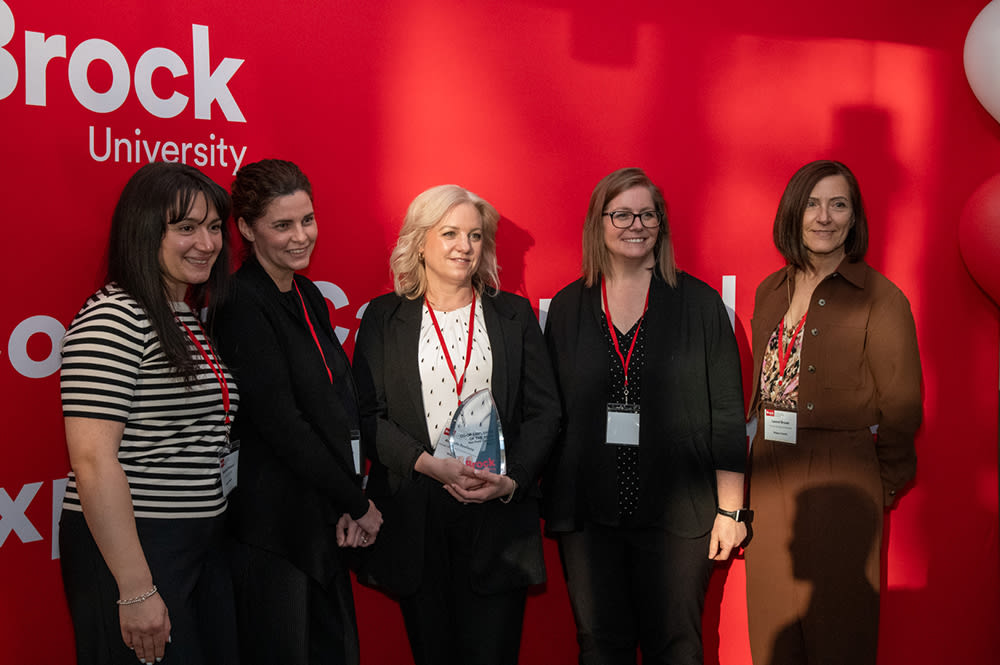In this edition:
- Niagara Region receives $6.8M for public transit in 2023-24 Gas Tax program
- Firm chosen for design work on Niagara Region’s largest-ever infrastructure project
- Niagara Health two-time winner at Brock University Employer of the Year Awards
- Investment in residential building construction declines for second month running
- Meridian celebrates Small Business Award winners and strategy milestones
- Construction stakeholders praise housing focus in Budget 2024 but cite gaps
- Focus on Equity, Diversity & Inclusion

Niagara Region receives $6.8M for public transit in 2023-24 Gas Tax program
The Ontario government is investing almost $380 million to help 102 municipalities improve local transit through the 2023-24 Gas Tax program. The funding can be used to expand service hours, increase routes, purchase new vehicles and improve accessibility to increase transit ridership.
Niagara Region received $6,845,789 for its now-unified public transit system.

Firm chosen for design work on Niagara Region’s largest-ever infrastructure project
A new south Niagara wastewater treatment plant, the largest and most expensive infrastructure undertaking in Niagara Region’s 54-year history, is taking another step forward with a public works committee recommendation to award a contract for detailed design and construction services.
The Niagara Falls plant will be able to handle 30 million litres of wastewater daily. It will take three years to build, cost an estimated $400 million to construct and supplant the $100-million Burgoyne Bridge replacement in St. Catharines as the Region’s most expensive project.

Niagara Health two-time winner at Brock University Employer of the Year Awards
Members of the Niagara Health team were proud to accept the Non-Profit Co-op Employer of the Year award for 2023. Niagara Health was selected based on its high-quality co-op training programs and a glowing letter of support from a past co-op student. This achievement recognizes ongoing efforts to recruit, train and retain top talent.

Investment in residential building construction declines for second month running
Investment in residential building construction decreased $157 million (-1.2%) to $13.4 billion in February, Statistics Canada reported today, marking the second monthly decline in a row. The monthly decline in February was led by Ontario (-$153 million to $5.2 billion). Meanwhile, investment in residential building construction edged up in six provinces, led by Newfoundland and Labrador (+$16 million to $78 million).

Meridian celebrates Small Business Award winners and strategy milestones
Meridian, Ontario’s largest credit union and of the largest in Canada, celebrated its corporate milestones and its Small Business Big Impact Award winners at this year’s Annual General Meeting (AGM) on April 18, 2024 at the Meridian Arts Center in Toronto.
The event included a Small Business Marketplace, a panel discussion with the winners of the 2023 Small Business Big Impact Awards, a Keynote address by Arlene Dickinson of CBC Dragon’s Den, and a chance for Board of Directors and Executive team to connect directly with Members and small business owners alike. The event was hosted by Sebastian Clovis of HGTV.

Construction stakeholders praise housing focus in Budget 2024 but cite gaps
Construction stakeholders found lots to like in the Justin Trudeau government’s latest budget but several expressed concern over what they perceived as gaps, misfires and missed opportunities.
The Canadian Construction Association (CCA) and the Association of Consulting Engineering Companies — Canada (ACEC) suggested Budget 2024 missed the mark by focusing extensively on housing and related issues to the exclusion of important long-range infrastructure planning.
Did you know?
Only 24% of Canada’s fish stocks are considered ‘healthy.’
Focus on Equity, Diversity & Inclusion
Mentorship is key to improving social and economic outcomes for Black youth
Black youth in Canada experience poorer educational achievement than other children and youth, which leads to subsequent poor economic outcomes.
A series of problems and barriers contribute to poor educational outcomes. These include negative attitudes of teachers towards Black youth, lack of African-Canadian history and culture in the educational curriculum, low teacher expectations of Black children, alienating school environments and a lack of Black teachers and mentors.
These, coupled with systemic discrimination and bias in hiring processes, translate to poorer economic outcomes.
By being mentored by Black people, Black youth are able to see that they have potential to achieve what their mentors have achieved. This is especially important for Black youth whose families have faced socio-economic disadvantage or downward occupational mobility.
Through the Daily Updates, the GNCC aims to deliver important business news in a timely manner. We disseminate all news and information we feel will be important to businesses. Inclusion in the Daily Update is not an endorsement by the GNCC.





